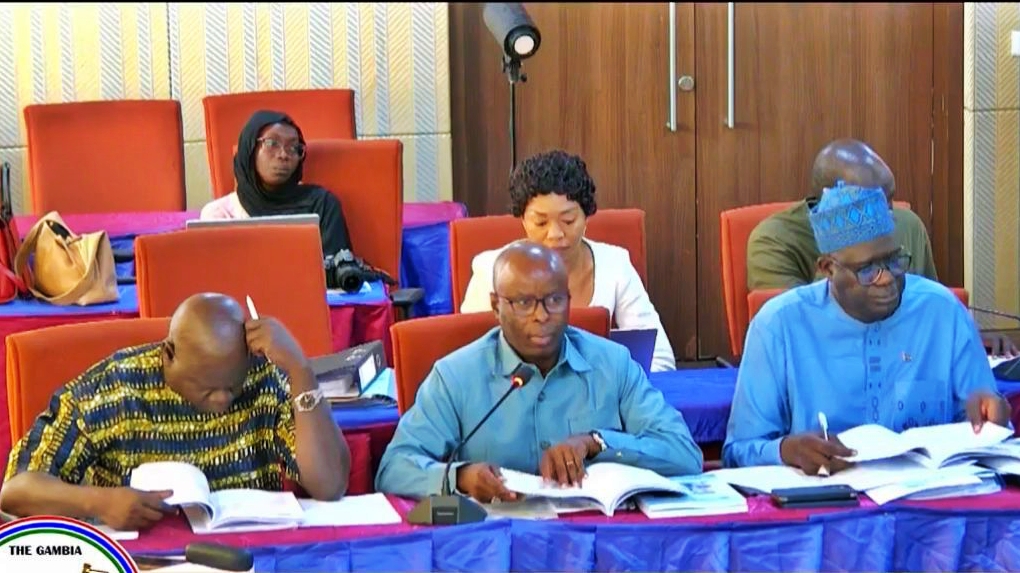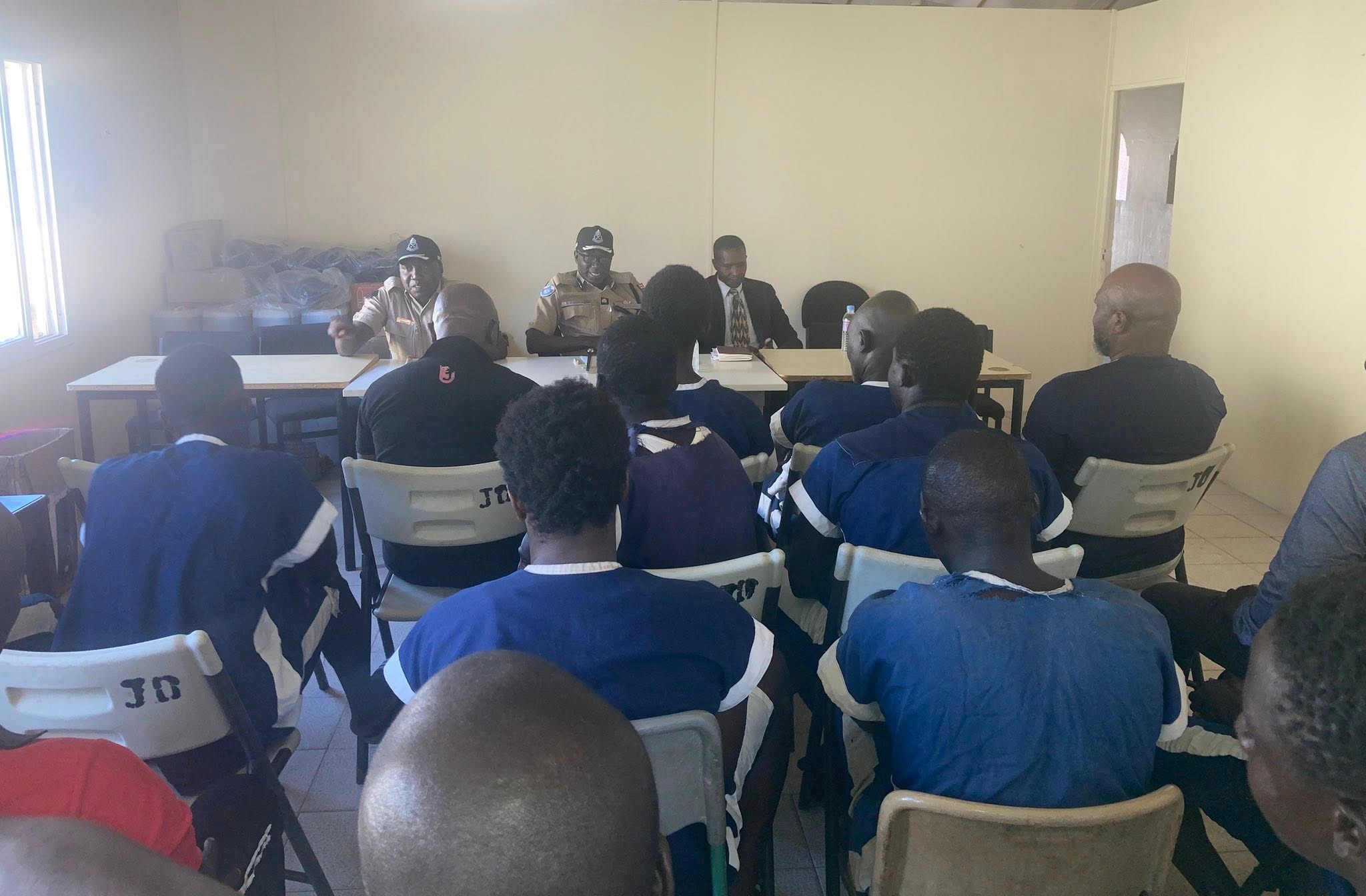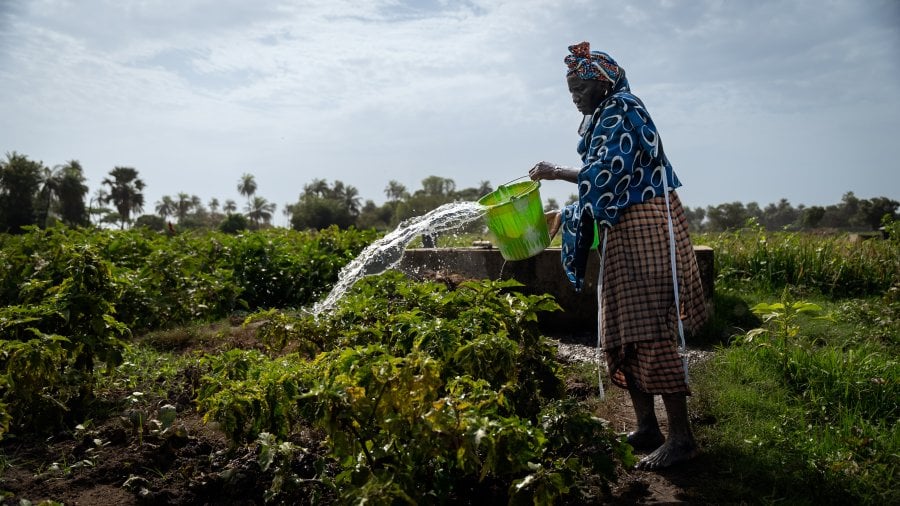Gambiaj.com – (Banjul, The Gambia) – Researchers from the Medical Research Council Unit The Gambia at the London School of Hygiene & Tropical Medicine (MRCG at LSHTM) has helped produce a landmark Lancet Health Policy report that warns climate change is already inflicting deep and widening health and economic burdens across Africa, despite the continent contributing the least to global emissions.
Published in The Lancet, the paper paints a stark picture: climate change is accelerating economic losses in developing countries, undermining progress toward the Sustainable Development Goals, and intensifying threats including infectious diseases, food insecurity, declining air quality, and rising pressure on health systems.
Economic Losses, Infectious Diseases, Food Insecurity & Air Quality
The new paper published in The Lancet shows that climate change is slowing the advancement of low-income countries toward their Sustainable Development Goals (SDGs).
For the Gambia, rising temperatures and unpredictable storms are disrupting agriculture, tourism, and fisheries—three pillars of the national economy.
As a result, the country risks losing years of development gains unless climate-resilient policies are implemented swiftly.
The report highlights that infectious diseases—such as malaria and diarrheal illnesses—are becoming more climate-sensitive. Hotter temperatures and heavy rainfall provide ideal conditions for disease spread, putting Gambian communities at heightened risk.
Food insecurity is another growing challenge. Droughts and extreme weather events weaken crop yields, affecting affordability and access to nutritious food.
Meanwhile, declining air quality increases respiratory illnesses, especially among children and the elderly.
Why the Gambia Is Disproportionately Affected by Climate Change
The Gambia is a country with minimal emissions but suffering the maximum impact of climate change.
Despite producing a tiny fraction of global greenhouse gas emissions, African nations, including the Gambia, face some of the world’s harshest climate impacts. This imbalance underscores the urgent need for climate justice and equitable financing mechanisms.
High Exposure to Floods, Heatwaves & Sea-Level Rise
The Gambia’s position along the Atlantic Coast makes it especially vulnerable to sea-level rise, coastal erosion, and flooding. Urban areas near the coastline are at risk of displacement, while rural farming communities face soil salinization and reduced crop fertility.
As world leaders converge for COP30, the report urges that human health must be placed at the heart of global climate action and Africa’s own development strategies.
The authors stress that stronger data systems, fairer climate financing, and evidence-based policies are essential to help African nations adapt and build long-term resilience.
Dr Zakari Ali, Lancet Countdown Africa Fellow, said African countries already possess valuable capacities that can be expanded.
“The solutions to adapt to the health impacts of climate change in Africa will not come easy, but we are not starting from zero. Now is the time to build new expertise and galvanize pockets of existing data to guide appropriate and effective action to safeguard human health across Africa,” he noted.
Climate Action and Health Resilience With New Africa Climate–Health Centre
Responding to the continent’s urgent needs, the Lancet Countdown has launched a dedicated regional center for Africa. The initiative—incubated at MRCG with Wellcome funding—is now hosted at the University of Pretoria’s Future Africa platform.
Its mission is to generate locally grounded evidence, track climate-health indicators, and support African policymakers with high-quality data for stronger climate action.
Professor Tafadzwa Mabhaudhi, Director of Lancet Countdown Africa, said the new center will help address the scale of the challenge.
“As the health impacts of climate change worsen, affecting millions of lives and livelihoods, the new Lancet Countdown will assemble eminent experts across the field and work with partners across Africa and globally to advance evidence and its translation into tangible solutions,” he said.
“The centre will elevate the African voice and support the translation of global climate commitments into meaningful solutions that protect health and livelihoods.”
Professor Kris Murray, Lead of Nutrition and Planetary Health at MRCG at LSHTM, underscored the need for global collaboration.
“Advancing knowledge and action on the health impacts of climate change cannot be effectively achieved without bringing together voices, evidence, and coordinated responses from all corners of the globe,” he said.
The new center, he added, aims to “shift the center of gravity of climate and health science, policy, and dialogue” to ensure that solutions are both globally informed and responsive to African realities.
The Gambia’s Commitment
Researchers from the MRC Unit The Gambia at the London School of Hygiene & Tropical Medicine (MRCG at LSHTM) played a major role in the new Lancet Health Policy paper, helping generate evidence designed for African policymakers.
Their work highlights the importance of building strong climate and health data systems. Reliable data helps identify hotspots of vulnerability, guiding smart policymaking and resource allocation.
MRCG at LSHTM reaffirmed its commitment to supporting the Gambian government and partners as climate change continues to reshape life on the continent.
The unit emphasized that safeguarding public health in a warming world will require close cooperation between researchers, policymakers, and communities.
The report’s authors hope that with robust evidence and Africa-led expertise, the continent can lead a new era of climate-health action—one that protects lives today while building a healthier, more resilient future.










